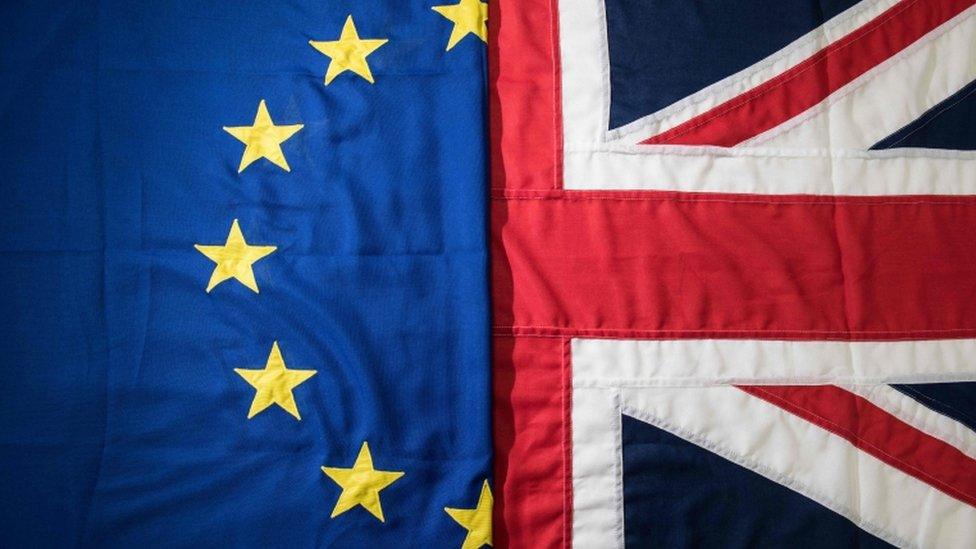Brexit votes: What happens next? Here are 7 possible outcomes
- Published
- comments
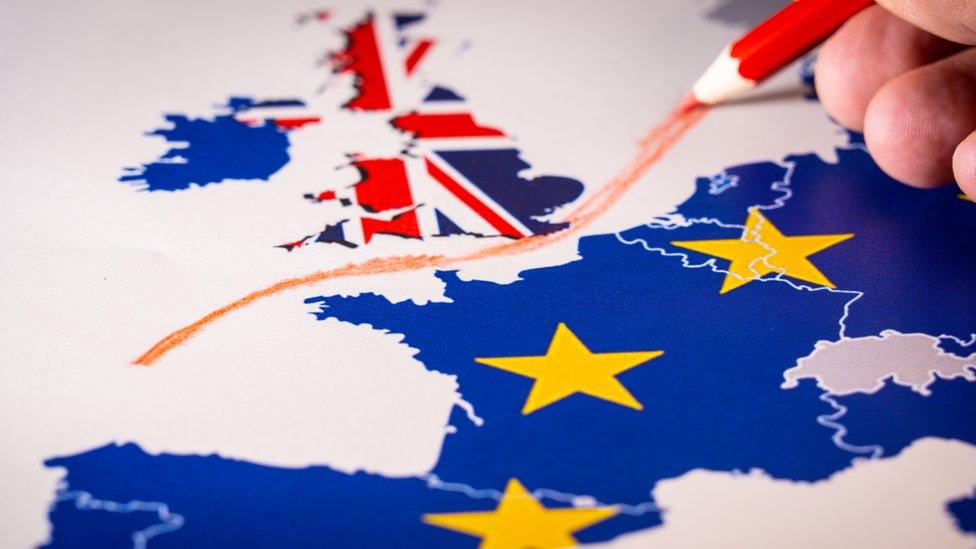
It's been a busy few days for Brexit with three important votes taking place in Parliament this week.
Tuesday - Prime Minster Theresa May failed to win support for her Brexit deal again from Members of Parliament (MPs). This is the agreement the the agreement that the prime minister negotiated for the UK's exit from the the European Union (EU).
This means that the UK Parliament has still not agreed a plan to leave the EU, or what its relationship with the group should be like in future.
Wednesday - MPs voted against the idea of the UK leaving the EU the UK leaving the EU without a deal on the planned exit date because many politicians believe it would be bad for the economy. It is not legally-binding though.
This means that British MPs still need to agree to a Brexit deal or pass laws to delay it soon OR the UK will leave the EU at 11pm on 29 March without a plan for the future, regardless of what MPs want to happen.
Thursday - In the final vote of the week, MPs voted for a delay to Brexit for three months or more; 413 voted in favour while 202 MPs against the idea of extending the deadline of something called Article 50, which is the name of the legal process that takes the UK out of the EU.
This means that the UK might not actually leave the EU as planned on 29 March.
Will Brexit be delayed now?
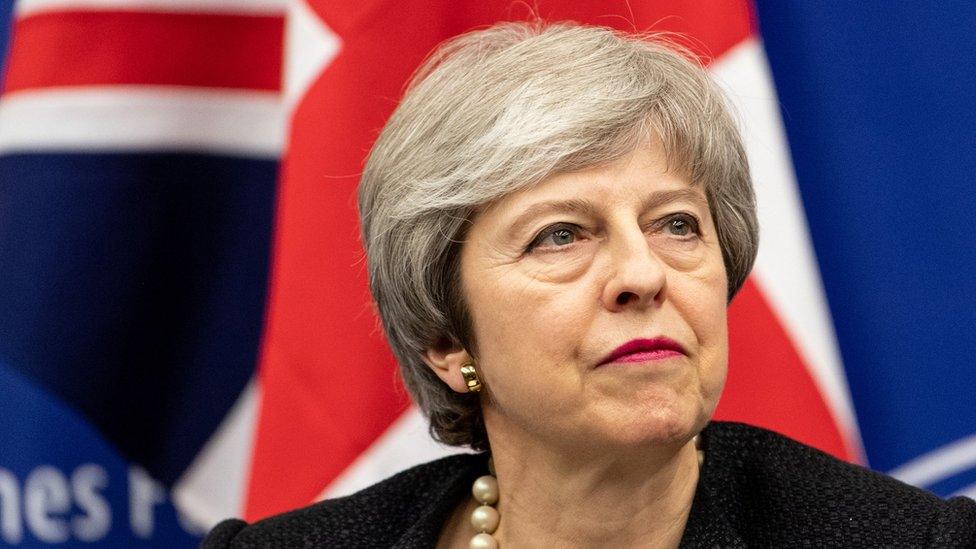
Prime Minister Theresa May's Brexit deal has been defeated for a second time
The British government can't just click its fingers and extend the deadline.
It now needs the 27 other EU countries to agree to push back Britain's departure from the EU until after 29 March.
The prime minister has already told MPs that this extension should be for no more than three months.
We want your reaction to what's been happening this week.
However, Theresa May warned MPs that a longer extension would be needed if they don't approve her Brexit deal by next Wednesday - 20 March.
But what would happen after that? There are still plenty of possible answers.
1. No deal at a later date

If there is a no-deal Brexit, adults may not be able to drive in EU countries without a special driving licence
A no deal Brexit means the UK would leave the EU with no agreements in place about what the relationship between them would be like from the moment the UK left.
If the UK and the EU cannot agree a deal during any extension to Brexit, then this would still be the automatic outcome.
So although a majority of MPs have said they don't want this to happen, they would need to do something else to prevent it from happening.
2. Another vote on PM's deal
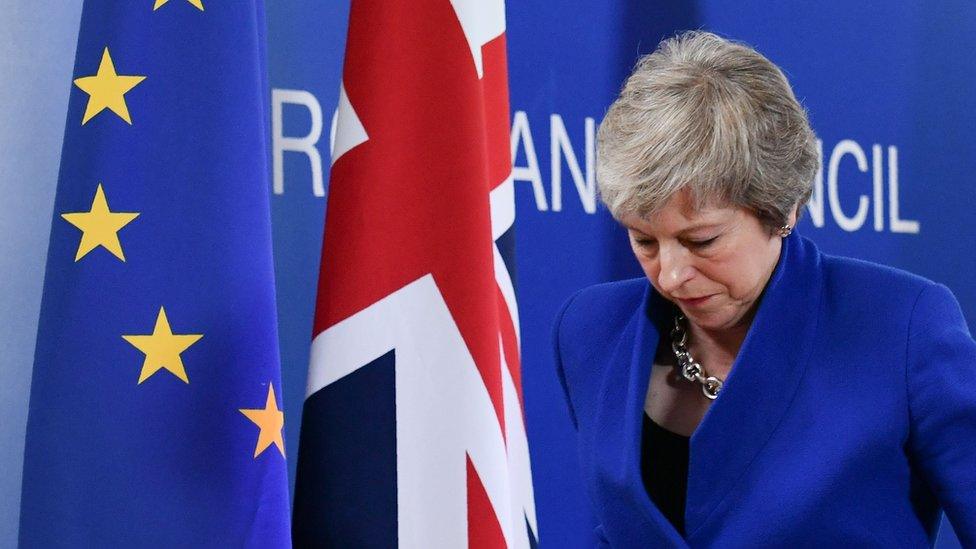
Probably the simplest option during an extension would be for Theresa May to have another go at getting her deal through the House of Commons.
So far, it has been blocked twice. However, the government may hope that the results of some other votes will have changed MPs minds about her deal.
If she could win support for the deal at a later date, the process would largely be the same as now. Laws would be introduced to bring it into effect with a new Brexit date.
3. Major renegotiation
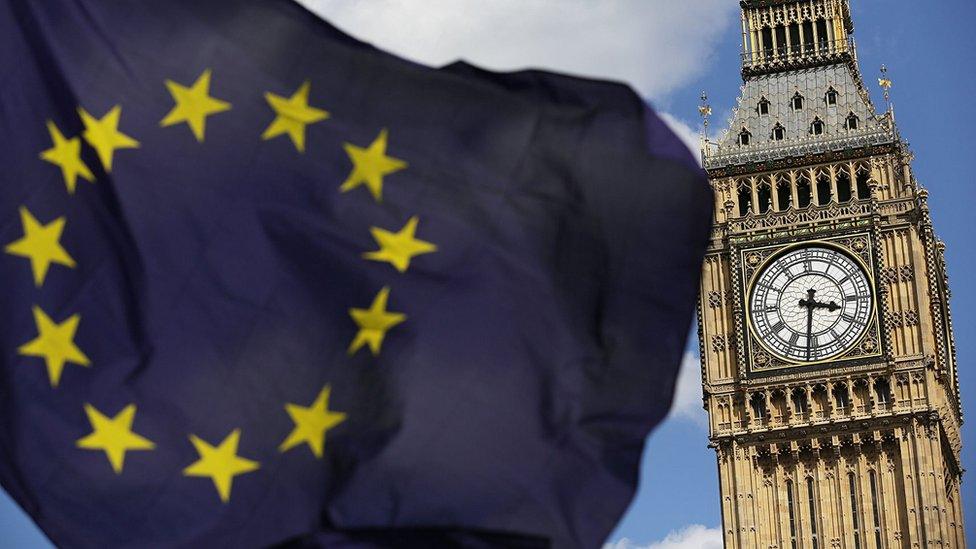
The government could try to negotiate a completely new Brexit deal with the EU but this would take some time.
Mrs May has made it very clear that she believes the deal she has presented to Parliament is the best deal that the UK is going to get.
The EU's chief Brexit negotiator Michel Barnier has also said Mrs May's Brexit plan "is the only possible deal".
If the EU refused to re-enter negotiations, the government would have to choose one of the other options instead.
4. Another referendum
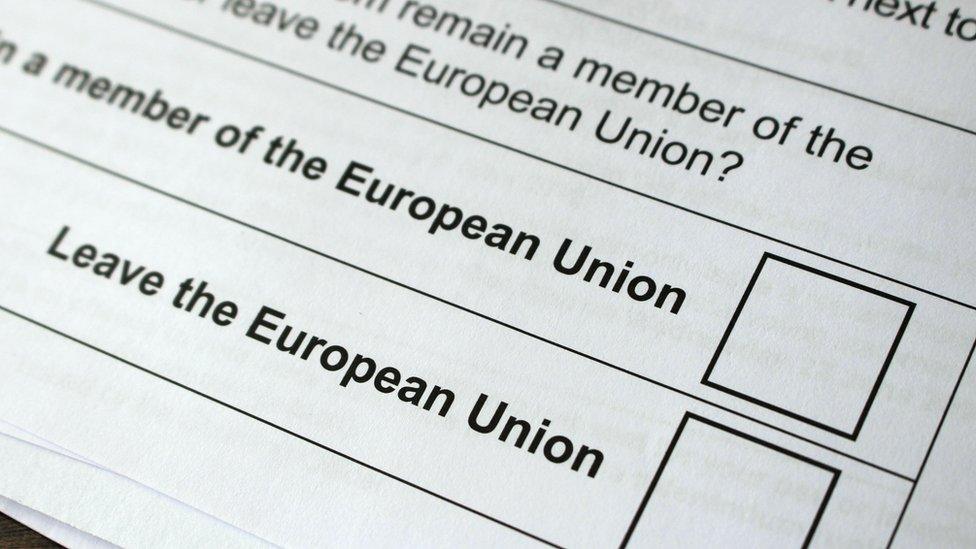
This picture shows the ballot paper from the EU referendum, which took place on 23 June 2016
Another possibility is to hold a new referendum vote on whether the UK should stay in or leave the EU.
At the moment, it doesn't appear that the majority of MPs want another referendum to happen.
Mrs May is also completely set against another referendum happening too.
If it were decided the UK should have another referendum, laws would need to be passed to allow it to happen - so there would be a period of time between that happening and the new public vote taking place.
Experts at University College London's Constitution Unit suggest that the shortest amount of time to go through all of the steps above would be 22 weeks.
5. UK general election
WATCH: How a general election works in 60 seconds
Another outcome is another general election, in which UK adults vote for a new government. This is what Labour Party leader Jeremy Corbyn wants to happen.
Given all the disagreements in the House of Commons, Mrs May could decide that a general election is one way out of the deadlock in which Parliament finds itself.
But she doesn't have the power simply to call an election. Two-thirds of all MPs would need to support the move.
The earliest date for the election would be 25 working days later but it could be after that - the prime minister would choose the exact date.
6. Another no-confidence vote
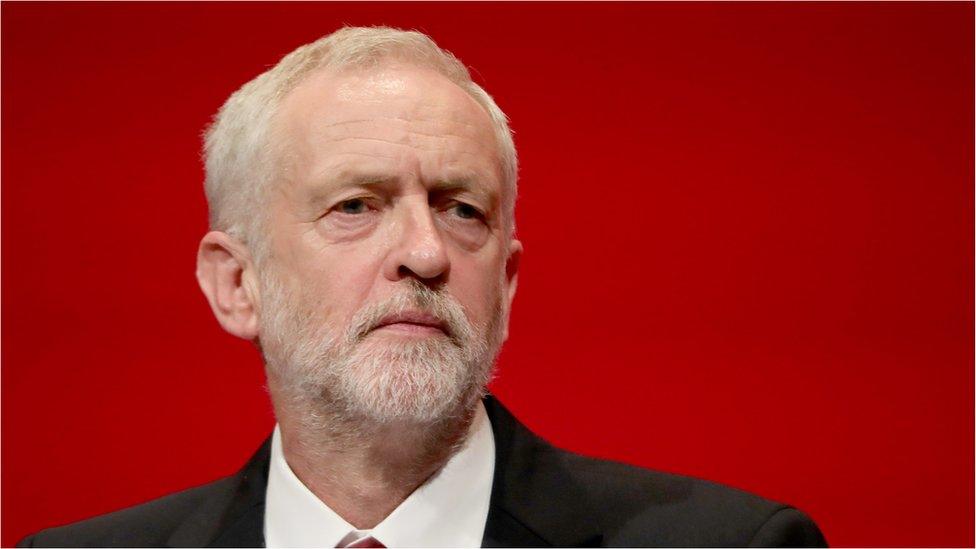
Labour leader Jeremy Corbyn has spoken out against Mrs May's Brexit plans
Theresa May survived a vote of no confidence in her government in January 2019. But the Labour Party - her main opposition - could call for another vote of no confidence at any time.
This would allow MPs to decide whether they want the government to continue to run the country.
If the government loses a formal vote of no confidence, it will set off a 14-day countdown.
If during that time the current government or any other alternative government cannot win the support of the majority of MPs, then an early general election would be called.
That election cannot happen until at least 25 working days later.
7. No Brexit
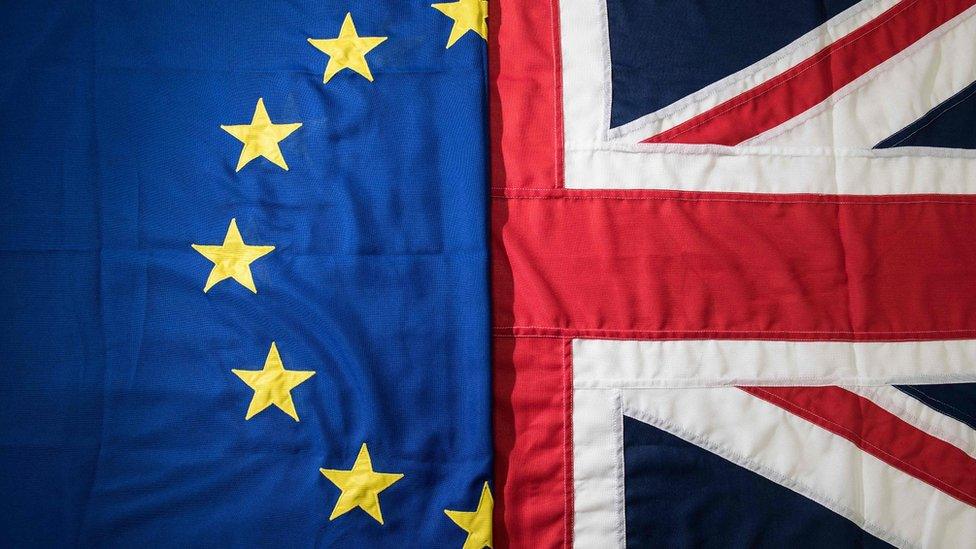
In December 2018, judges from the European Court of Justice ruled that it would be legal for the UK to cancel Brexit without the permission of the other 27 EU members.
With the government still committed to Brexit, it's very likely that a major event such as a further referendum or change of government would have to happen before such a move.
It's not totally clear how this would be done either, but a law calling for Article 50 (and Brexit) to be cancelled would probably be enough.
Other possibilities
WATCH: How the Conservative Party handles a leadership challenge
After Theresa May survived a challenge to her leadership, the Conservative Party's rules mean she cannot face another for 12 months.
But she could always decide to quit anyway, if she can't get her deal through and she's not prepared to change her mind.
That would start a Conservative leadership campaign, which would lead to a new prime minister being named.
Whoever ended up in charge would still face the difficult decision of what to do next with Brexit.
- Published13 March 2019
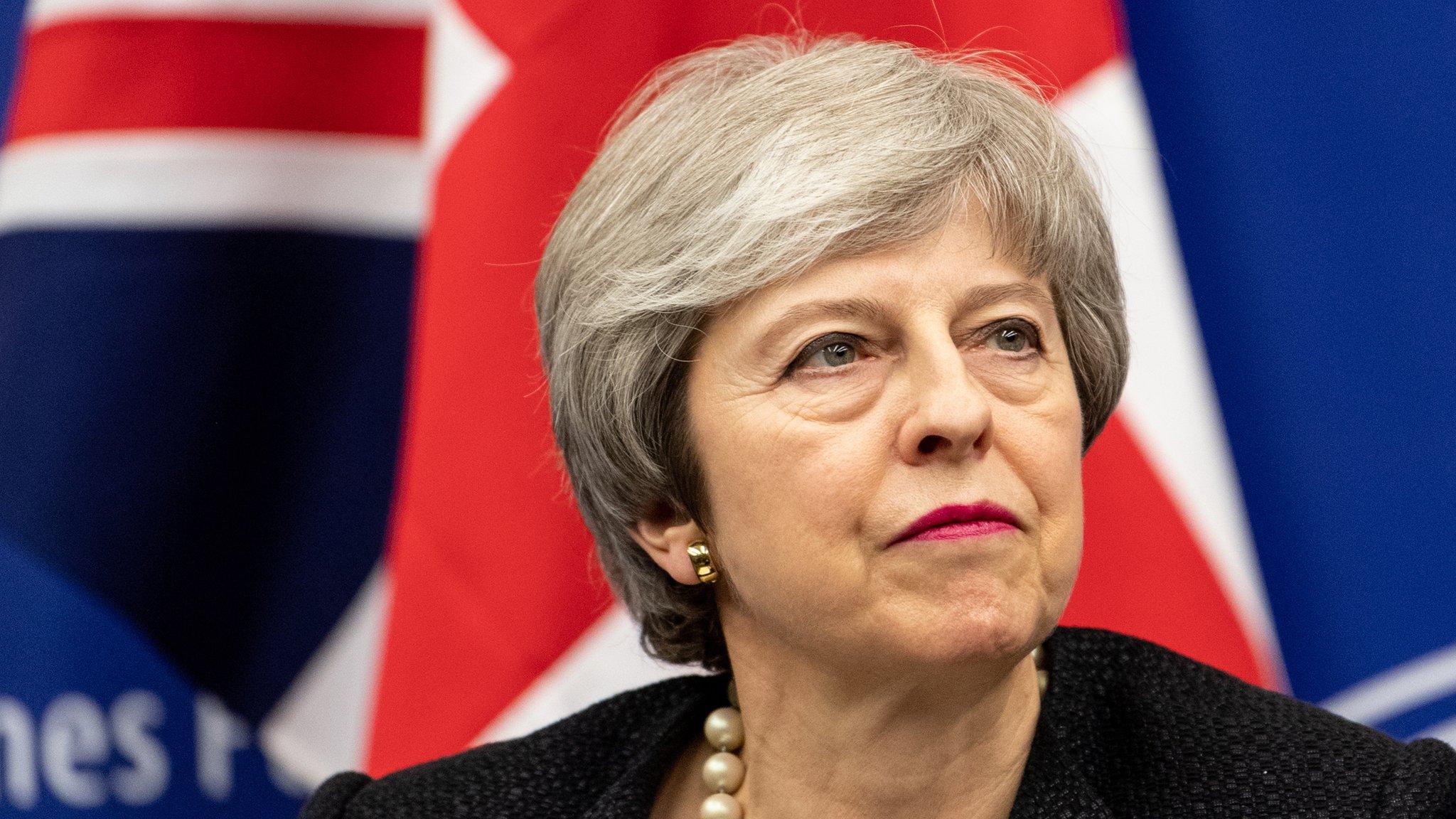
- Published16 September 2019
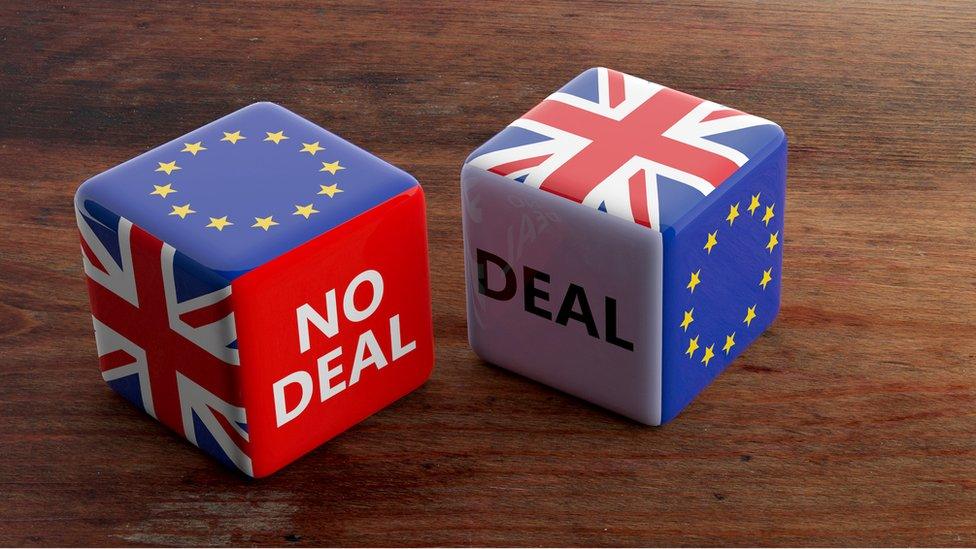
- Published23 October 2019

- Published25 November 2018
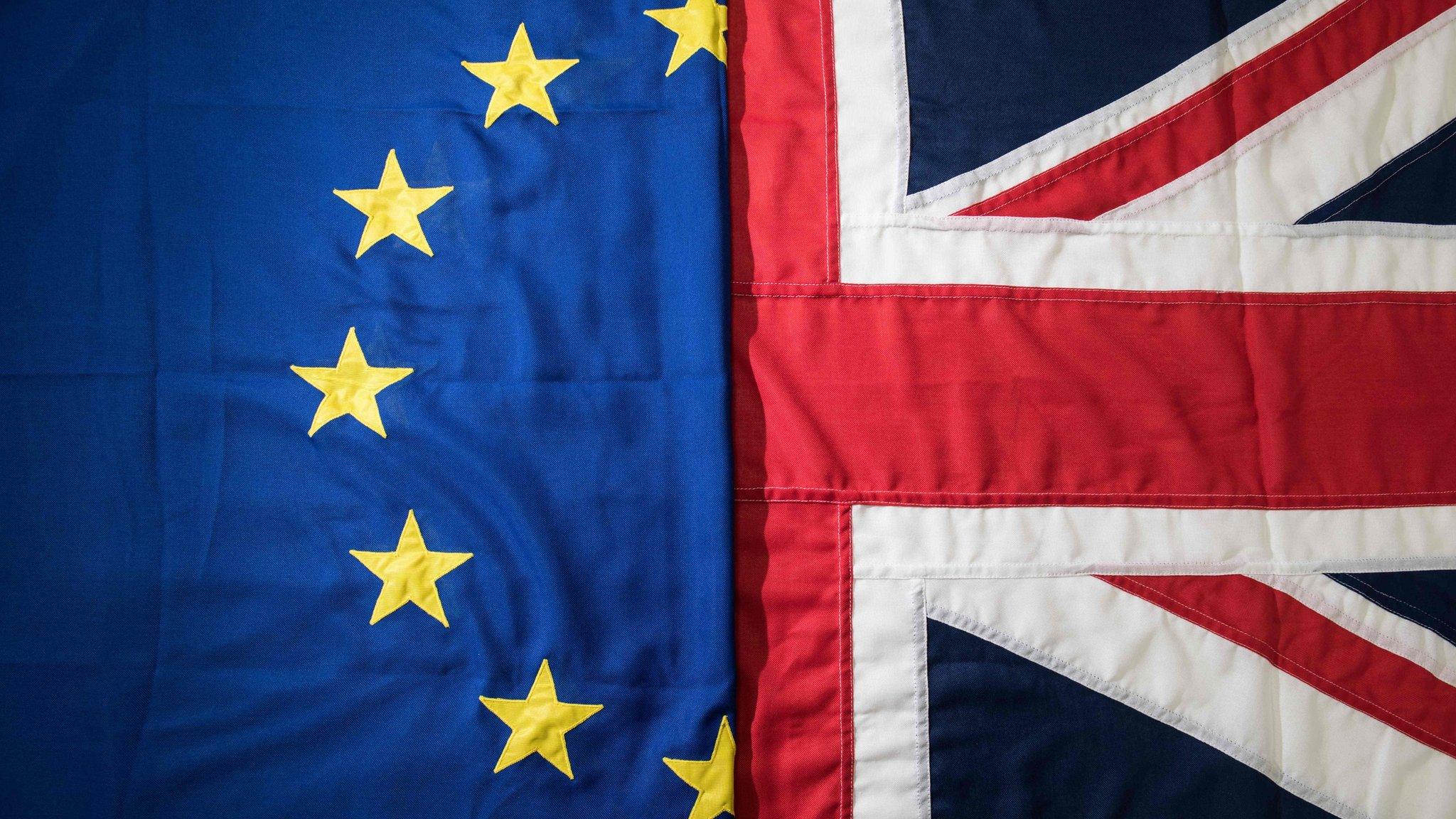
- Published18 November 2018
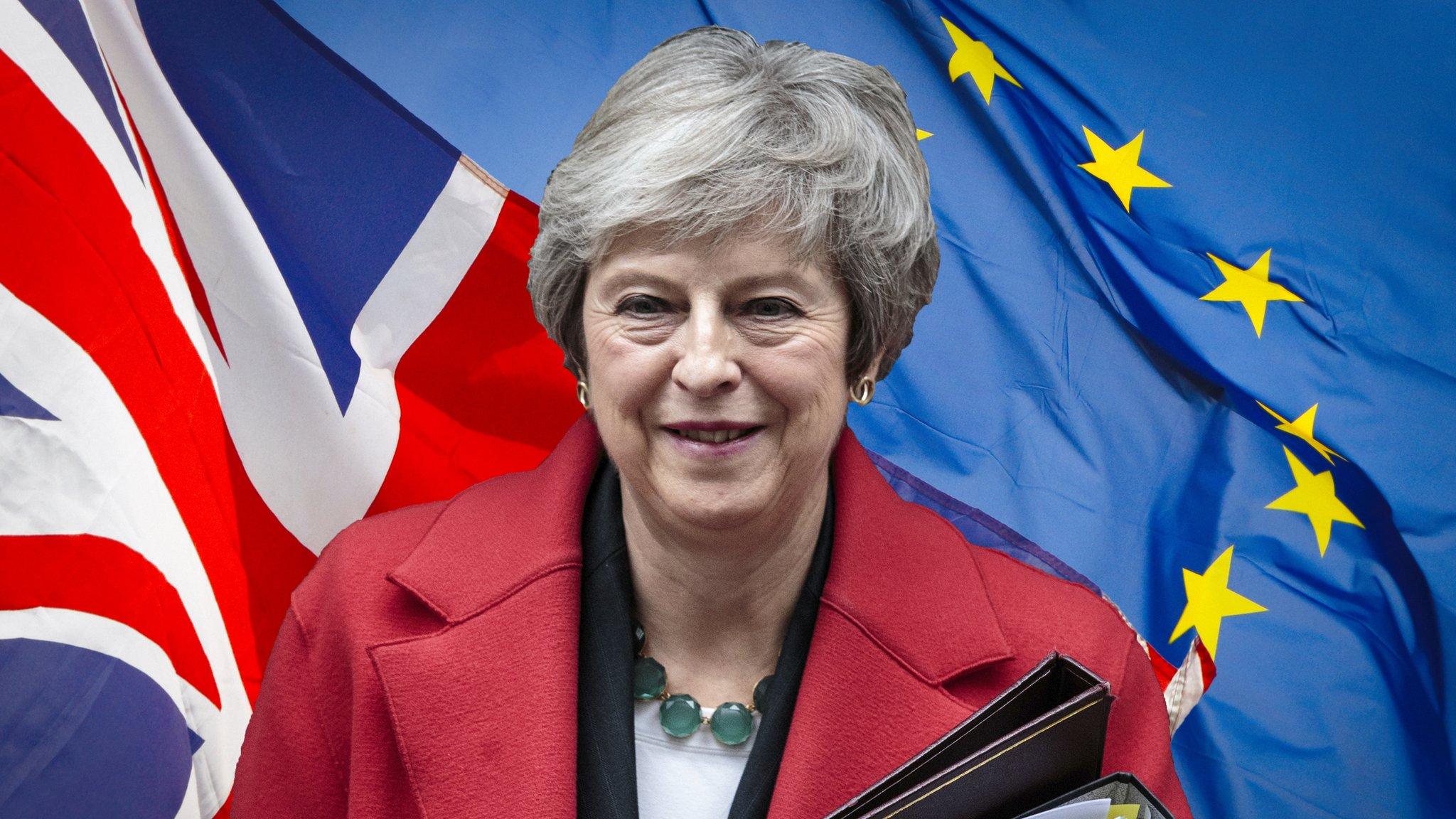
- Published29 October 2018
